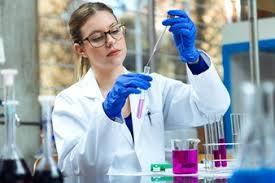Telomeres and telomerase may play a crucial role in cellular aging, cancer initiation, and tumor survival, but a thorough understanding of the mechanisms involved in telomere length (TL) maintenance and telomerase expression gives experts the tools they need to develop diagnostic tools, determine disease prognosis, and formulate effective anticancer therapeutics.
Topics: Protein Estimation
Topics: Protein Purification, Western Blotting, Protein Electrophoresis, Protein Estimation, Sample Clean Up, Protein Concentration, Protein Fractionation, Protein Extraction, Buffers & Chemicals, Protein Detection
Mitochondria, Reactive Oxygen Species (ROS), and Their Effect on the Body
Reactive oxygen species (ROS) are highly reactive molecules and free radicals formed as a natural byproduct of oxygen metabolism. These molecules, which are present at low levels in normal cells, play a vital role in maintaining healthy redox processes and ensuring proper function in the cells. However, an overproduction of ROS may cause oxidative stress, cellular damage, and DNA damage, which may lead to several physiological and pathological conditions.
Topics: Molecular Biology, Protein Electrophoresis, Protein Estimation, Assay Development (ELISA), Protein Concentration, Bioassays
Detergents are amphipathic compounds with a nonpolar, hydrophobic tail and a polar, hydrophilic head group. Due to these structural features detergents tend to aggregate into structures called micelles at high enough concentration; arranging themselves with their hydrophobic tails pointed inwards and their hydrophilic heads pointed outwards. Detergents come in three types: ionic (cationic and anionic) and non-ionic. Non-ionic detergents aren’t generally used for gel electrophoresis due to their limited ability to break non-covalent interactions between protein residues and inability to impart a uniform charge onto the protein. Ionic detergents (typically anionic SDS) are used for gel electrophoresis as they are highly useful for protein solubilization, linearization and for establishing a uniform charge in preparation for gel electrophoresis.
Topics: Protein Purification, Western Blotting, Protein Estimation, Detergents, Sample Clean Up, Protein Concentration, Protein Fractionation, Protein Labeling, Protein Extraction, Protein Detection






